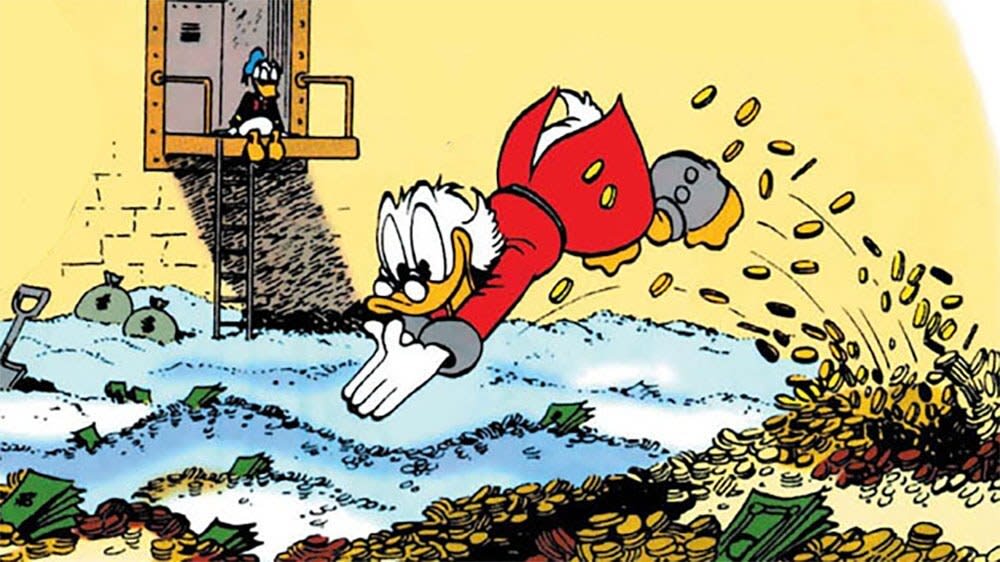Death and taxes are two certainties in life, and you could add to that list that success gambling doesn’t come easily. There are no short-cuts to profits but we have compiled a list of the six most common betting mistakes in sports betting.
When you’re going through a bad run of betting results it’s difficult to see how sharp bettors can regularly make money from betting – but it is possible. Avoiding these pitfalls won’t guarantee you a steady income, but it’ll certainly be a start.
Contents
1. Giving way to emotions
Knowledge is power – we can’t stress this enough.
The cornerstone to every successful sports betting operation is research. You can never do too much research. On top of knowing the form, influence of the location, strengths, weaknesses, and countless other important factors, it’s also paramount to know when to bet, and when to pass.
After an unfortunate loss, you might be tempted to take a punt on an unfamiliar team or sport to try and recoup some of your money. In the heat of the moment, odds may look so damn perfect that your gut will twist and churn, practically screaming at you that this could only be the right move. If that happens, don’t listen!
You may as well just hand over your cash. Take a couple of deep breaths, go grab a beer or go throw some balls around at the closest park – this is a time to be chill, not shrill.
Make sure you understand how much information you need. Learn the best ways to acquire it, then use the research to build statistical models and systems that help you gain an edge. Don’t listen to that shrieking voice – like your five-year-old nephew at sleep time, it just doesn’t know any better.
2. Taking insider tips from strangers
Social media is awash with betting tipsters. This level of interest would have you believe that a faceless typo-riddled forum dweller is capable of beating every bookie from here to Scrooge McDuck’s freaking vault.

Newsflash: many of them are likely affiliates that actually make money from your losses. The same goes for other supposedly solid tips (e.g. “I have a cousin who has a friend…”) – if a sentence starts with these words, run to the hills.
Unsurprisingly, their motivations may not be in sharing profitable advice, but in inflating odds that will benefit themselves, and not you. So keep that in mind the next time you come about that obscure Reddit post whose creator claims to know something no one else does.
Once you dig further down this hole, you’ll often find tipsters only talk about their wins. What they don’t mention – apart from their losses – is the possibility that their results are simply due to chance or survivorship bias (which we will address on another article). In short, this could mean that if enough tipsters out there are making predictions, just like monkeys at typewriters, one should eventually hit a winning streak. There are tipster evaluation services that can help with the above – use them at your own discretion.
3. Confusing long-shots for value bets
When we talk about value, we don’t mean the potential size of winnings. If that were true, it would be much more profitable to consistently bet on long-shots. Odds are calculated based on the probabilities of an event happening. If a long-shot comes in, it’s not because the odds were wrong, sometimes they do just happen.
The best way to find value bets is by calculating the probabilities yourself (based on performance, information and historical data for example) and comparing them to bookmakers odds.
Once you have confidence in your calculations, you may sometimes notice a discrepancy between your data and the bookmaker’s – that’s where real value bets reside. After double-checking these, you can turn that discrepancy to your advantage and earn some real profit.
4. Betting in all the wrong places
Odds at all bookmakers will fluctuate given the amount wagered on outcomes. However not all odds are created equal. A bookmaker’s margin is worked into the odds offered – this is sometimes called overround, and the higher the margin, the worse it is for punters.
Cloudbet has one of the lowest margins of any bookmaker around, so we’re able to offer competitive odds on virtually all our markets – so come check it out!
5. Picking the wrong staking method
A staking method concerns not what you are betting at, but how much are you betting each time. Picking the right one is important, particularly for long-term strategies. Choose the wrong staking method and you may see your winnings evaporate after a particularly heavy loss, so it’s vital that you consider how much you are staking in each subsequent bet.
We have previously talked about the most popular methods, such as the Kelly Criterion, the Fibonacci and the Progressive system – go check them out, if you haven’t already.
If you want to make consistent profit from betting, your first step is to try and gain advantage over the books. In the end, this all comes down to how much information you are able to find and process. You might know that a soccer player is injured, that a horse generally performs better in particular conditions or something as simple as the weather for a baseball game.
However, you won’t be right 100% of the time, and you need to factor this in your betting strategy. This way, if your advantage over the bookmaker doesn’t materialize, you have enough bankroll to continue betting.
Most career bettors split their bankroll into units and those staking units, whatever denomination they might be, are what gets used. And it’s the same for each wager.
6. Failing to understand the effects of cognitive biases
The mind is an incredible tool and the smart bettor’s most powerful ally. Unfortunately, it’s not always rational. In order to be successful in betting you need to be able to separate yourself from emotional responses. One of the first steps is being aware of the human mind’s hard-wired cognitive biases.
When it comes to betting, the most prevalent ones are the Gambler’s fallacy, confirmation bias, and anchoring.
Humans are creatures of habit. Building upon this trait, the confirmation bias is the tendency to interpret or seek information that supports our pre-existing ideas. We do it unconsciously all the time, and it takes honest examination to figure it out. It’s dangerous for bettors because it might lead you to downplay the value of the information if it goes against your own opinion, and overestimate rumours that may confirm your preconceived ideas. Like, for instance, when you feel tempted to back the team you support even if all the data points toward a stronger opponent.

Anchoring is the tendency to rely on the first piece of information you receive. It is particularly dangerous for bettors because the order you receive information doesn’t necessarily correlate to its intrinsic value to the outcome. That information may be incomplete, or it may become outdated, or perhaps it was even plain wrong to start with.
When in doubt, question everything. A good tactic is to list all you think you know and assess each piece of information individually against different sources. Afterwards try to rank them according to their own individual merit – make sure to factor the source’s reliability, its time-relevance and, lastly, its position relating to the other pieces.
Biases are by their very nature a hard thing to avoid, and the best way of going about them is to be aware of their existence. So, when you hear from someone at the pub that your team is hiring a new, awesome player no-one else has heard of, and should therefore win all games on this year’s season, beware of the red flags.
These common mistakes are easy to make and can often affect even the most seasoned of gamblers – so don’t worry if you make a few mistakes on your path to becoming a master-gambler.
Learning to avoid them is one of the steps on your journey to turning an overall profit. The takeaway here is, In order to consistently make returns, you need to be able to assess information independently from your instinct. And, as with most other skills, practice makes perfect.






